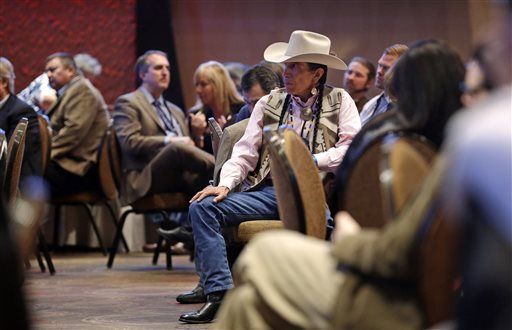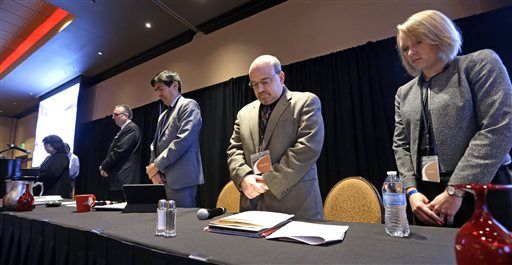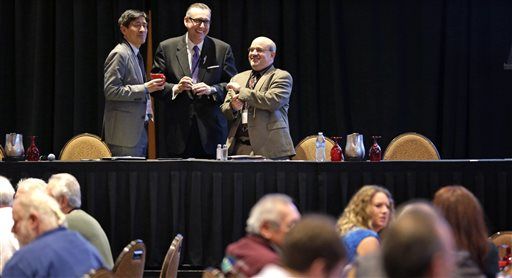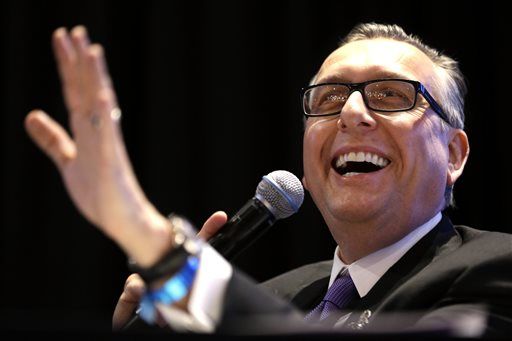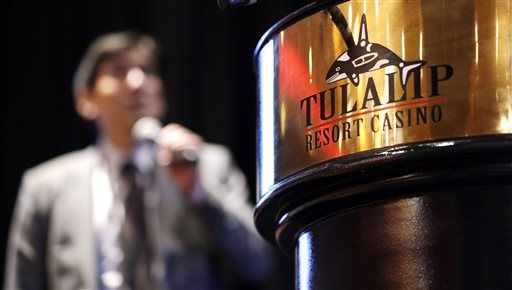The first national Tribal Marijuana Conference will take place in nine days at the Tulalip Resort Casino in Quil Ceda Village, Washington and with interested parties already in attendance, Henry Cagey has announced a meeting to discuss forming a Tribal Cannabis Association to be held February 28.
Cagey, the former chair of the Lummi Nation and current council member, looks to take advantage of tribal leaders, executives, entrepreneurs, and Native health and social work professionals, and law enforcement personnel in attendance on February 27 to explore how tribes could work together to address marijuana development in their sovereign tribal territories.
Cagey’s meeting will be held in the same location as the Conference.
Medical marijuana is currently legalized in 23 states, is legal for persons over the age of 21 in four states, and legalized for recreational use in Washington and Colorado. The United States Department of Justice in October 2014 issued a “Policy Statement Regarding Marijuana Issues in Indian Country.” Within the statement, the DOJ addressed law enforcement concerns by stating it will continue its enforcement priorities “in the event that sovereign Indian Nations seek to legalize the cultivation or use of marijuana in Indian country.”
RELATED: Groundbreaking Conference to Discuss Legalizing Marijuana in Indian Country
“I believe that the development of marijuana businesses in Indian country raises important issues that tribal leaders need to discuss,” Cagey said in a press release announcing the meeting.
Recently, reports surfaced that at least 100 tribes were exploring their options of growing medical marijuana with the Pinoleville Pomo Nation in California set to be the first tribe to begin cultivation according to an ICTMN story.
RELATED: Proceed With Caution: A Warning to Tribes Wanting to Grow Medical Marijuana
“We’ve been contacted by more than 100 tribes from coast to coast that want to get into the business in one way or another,” Barry Brautman, president of FoxBarry Companies, a group of Kansas-based operations that specialize in developing Native business enterprises, said.
The Conference and Cagey’s meeting appear to be arriving at just the right time for the surge in interest of a new economic train throughout Indian country.
RELATED: La Push Kush, Lummi Yummy, Apache Gold? When the Rez Smoke Shop Goes to Pot
“There exists enormous new market potential for commercial marijuana initiatives on Native lands,” Hilary Bricken, one of the foremost legal experts and premier cannabis business attorneys in the country, said when the Conference was announced. “This is an unparalleled opportunity for tribes to participate in a growing sector of commerce and diversify their economies, yet there is much to be considered to ensure successful implementation of tribal policy and law.”
“Given recent developments, we are excited to announce this historic opportunity for tribal leaders to gain a better understanding of the implications of marijuana legalization in their territories,” Robert Odawi Porter, Conference co-sponsor and organizer, a leading attorney in tribal sovereignty and treaty rights protections and former president of the Seneca Indian Nation, said. “We are bringing together some of the best, most experienced lawyers and commentators at the intersection of Indian law and marijuana law to share their experience in addressing the evolving issues surrounding recreational and medicinal marijuana usage in Indian country. Our goal is to pursue a balanced discussion of the important legal, business, social, and cultural questions that would inevitably affect Native societies were legalization to occur.”
Throughout the organization of the meeting, Cagey focused on certain topics that should be discussed, such as: setting policy on medicinal or recreational usage, the need to develop model tribal regulatory laws, defining protocols for tribal self-regulation and oversight, and establishing formal consultation with federal and state officials to support tribal sovereignty.
“The promise of substantial revenues that are coming from this will lure some tribes into it blindly,” Walter Lamar, president of Lamar Associates, a Native-owned consulting and professional services company, recently told ICTMN.
RELATED: Marijuana Legalization Must Remain Public Policy Debate
The meeting will be open to tribal government officials and representatives, tribal citizens and tribal attorneys at no charge, though registration is required to attend.
“Whether one supports legalization efforts or opposes them, there is much research and legal development that must be done. Tribes should work together whenever possible to protect our sovereignty and help our Native people,” Cagey said.
For more information on the Tribal Cannabis Association and to pre-register, contact: Megan Nord at megan@harrismoure.comor by phone at (206) 224-5657. Registration to attend this meeting ends on February 27, at 8 p.m.
